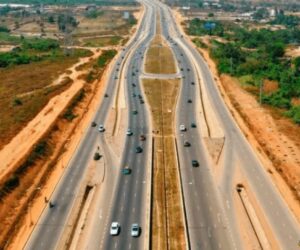Across Africa, the sun is powering a quiet revolution, one gigawatt peak (GWp) at a time. From the deserts of Algeria to the rooftops of Johannesburg, solar capacity is exploding. Yet in Nigeria, a nation blessed with some of the world’s richest sunshine, progress remains painfully slow.
While other African nations are making significant strides in renewable energy, Nigeria’s growth is hampered by a challenging policy environment, including a controversial proposed ban on solar panel imports.
The latest data from the Africa Solar Industry Association (AFSIA) for the first half (H1) of 2025 reveals a continent on a strong growth trajectory.
Read also: UCEE Mfb marks anniversary with N50m solar loan push
According to AFSIA, the continent now boasts over 20 GWp of operational solar capacity, spanning utility-scale plants, commercial & industrial installations, mini-grids, solar home systems, and residential projects in select countries.
“And this milestone will be outdated very soon, as over 10 GWp are currently at various stages of construction all over the continent,” AFSIA stated.
Meanwhile, while new solar installations are slowing down in some parts of the globe, African solar continues to grow and even accelerates its growth.
Africa’s solar rise without Nigeria
Despite being a force in the energy sector on the continent, Nigeria is conspicuously absent from the list of leaders driving this boom. South Africa remains the dominant force, accounting for approximately half of all installed capacity.
North African nations like Egypt, Morocco, and Tunisia also feature in the top four. The report identifies other hot spots of rapid growth, including Zambia, Botswana, Zimbabwe, and Namibia in Southern Africa, as well as Senegal and Algeria.
According to AFSIA, countries like Zambia, Botswana, Namibia, and even Senegal have added significant new capacity by 2025. Algeria, after years of delay, is pushing ahead with a 3 GW solar mega-plan. Across the continent, more than 40,000 projects are in motion.
Global solar growth has slowed, with installations in the US falling by seven percent year-on-year. However, Africa’s expansion is accelerating. Last year saw a 44 percent jump in new capacity, building on a 22 percent rise in 2023.
Nigeria, however, is largely missing from the story.
The paradox of plenty
Nigeria enjoys daily solar radiation between 3.5 and 7.0 kWh/m², enough to power its vast population many times over. Yet 85 million Nigerians still live without access to grid electricity. Those connected endure chronic blackouts, forcing homes and businesses to rely on noisy, polluting petrol/diesel generators.
While small solar home systems and mini-grids have brought relief to some rural communities, the nation’s large-scale solar rollout has barely left the starting line. Projects stall due to poor financing, policy inconsistency, and investor wariness.
Solar imports ban: A policy that could backfire
In March 2025, the government announced it would ban the importation of solar panels in a bid to boost domestic manufacturing. Officials argued the move would create jobs, build technical expertise, and keep economic value within Nigeria.
Read also: JMG deploys solar power to save N40m in diesel costs
But industry players warn that local capacity is nowhere near ready. The country’s biggest solar assembly plant produces fewer than 72,000 panels a year, woefully short of the millions needed to close the energy gap.
Earlier, PwC had urged the federal government to delay its planned ban on solar panel imports, warning it could undermine recent energy access gains and weaken investor confidence in Nigeria’s renewable sector.
In a report entitled, ‘Rethinking Nigeria’s Proposed Solar Panel Import Policy,’ the firm said the goal of boosting local manufacturing is laudable, but a gradual, phased rollout is needed to prevent unintended setbacks.
The government, citing an influx of substandard products, has proposed restricting imports to promote domestic production, conserve foreign exchange, and create jobs.
However, PwC cautioned that without careful sequencing, the policy could stall clean energy growth. Official data showed solar panel imports fell sharply, from about N237.3 billion in the fourth quarter (Q4) of 2024 to N125.29 billion in the first quarter (Q1) of 2025, indicating an 89 percent drop.
“In 2023 alone, Nigeria imported over four million solar panels, valued at more than $200 million. This is not just a reflection of our energy crisis, but also of the absence of adequate local manufacturing capacity,” PwC stated.
Critics say the ban risks triggering shortages and steep price hikes, putting solar out of reach of households and small businesses. The warning is not without precedent: Nigeria’s rice import ban in 2015 caused prices to surge more than 200 percent in just seven years.
Following mounting backlash from the Renewable Energy Association of Nigeria and editorial voices warning of ‘doublespeak,’ the government has reportedly softened or walked back the ban, though doubts persist amid policy unpredictability.
Missing the solar train
While Algeria races to install gigawatts of new capacity and Zambia triples its installations, Nigeria risks watching the continent’s solar boom speed away from the platform.
Experts say turning things around will require a consistent policy framework, incentives to attract investors, serious investment in local manufacturing, skills, and a rapid scale-up of decentralised solar solutions.
Read also: Katsina approves N20 billion for acquisition of Solar electricity generation equipment
“Egypt has implemented this strategy effectively. The Egyptian government reduced import duties and offered tax incentives to support local solar projects,” said Jumoke Olasunkanmi, fellow at African Liberty.
Olasunkanmi said that Egypt’s policy changes attracted significant foreign and local investment, led to the construction of over 30 solar power plants, and helped build local capacity in solar installation and maintenance.
“Nigeria can learn from Egypt’s strategy and create a more investment-friendly environment to boost the solar energy sector,” she said.









